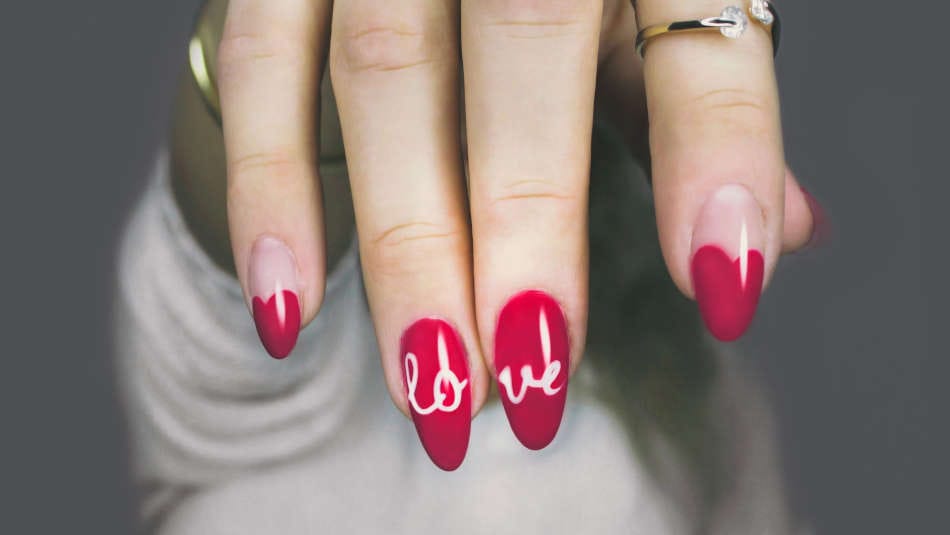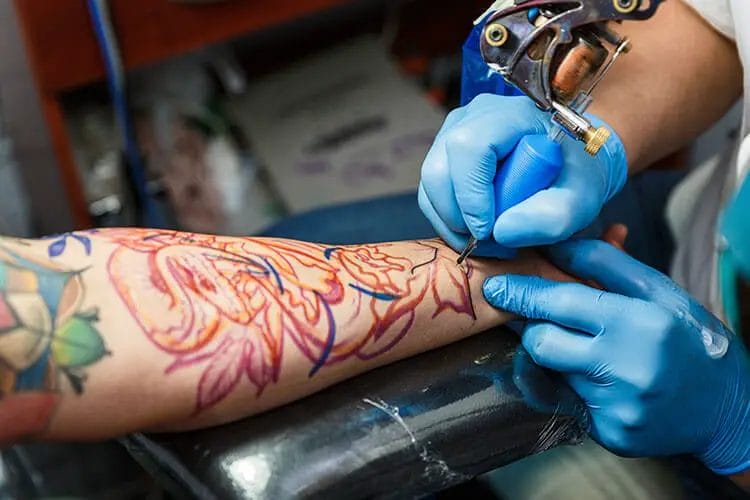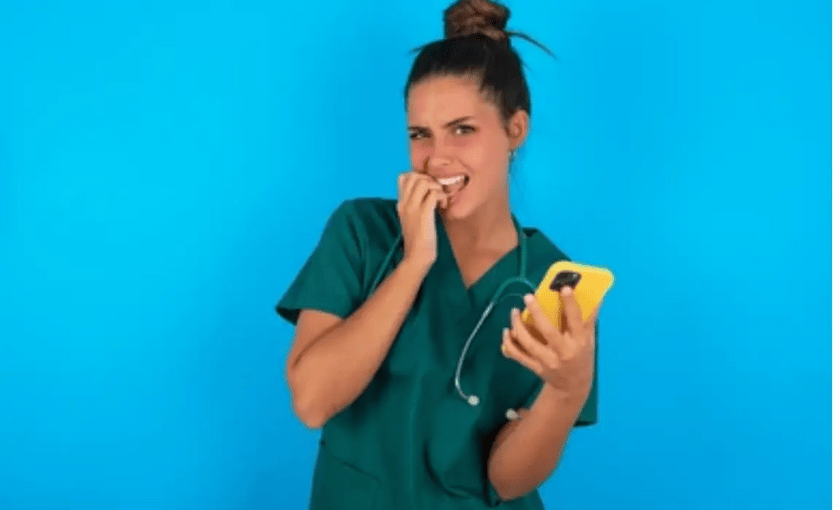Wondering if nurses can have acrylic nails? While acrylic nails may look trendy and fashionable, they can pose serious risks for healthcare professionals, including nurses. The long and sharp nails can harbor bacteria and make it difficult to maintain proper hand hygiene, which is crucial for infection control in a clinical setting. Many hospitals and healthcare facilities have strict policies that prohibit nurses from wearing acrylic nails to ensure patient safety and prevent the spread of infections.

The Pros and Cons of Nurses Having Acrylic Nails
Nurses play a vital role in healthcare, providing direct care to patients and ensuring their well-being. While their primary focus should always be on patient safety and infection prevention, there has been some debate surrounding whether nurses should be allowed to have acrylic nails. In this section, we will explore the pros and cons of nurses having acrylic nails.
Pros of Nurses Having Acrylic Nails
1. Aesthetics: Acrylic nails can enhance the appearance of nurses, allowing them to feel more confident and put together during their shifts. Some may argue that this can positively impact their professionalism and ability to connect with patients.
2. Nail Protection: Nurses often work in a high-stress and physically demanding environment. Acrylic nails can provide an added layer of protection for their natural nails, preventing them from chipping or breaking easily.
3. Increased Nail Length: Acrylic nails can allow nurses to achieve longer nail lengths that may not be possible with their natural nails. This can be beneficial for those who enjoy having longer nails or need them for certain tasks, such as opening medication packaging.
4. Nail Art: Acrylic nails offer the opportunity for nurses to express their creativity through nail art. This can be a form of self-expression and provide a way for nurses to showcase their personal style.
Cons of Nurses Having Acrylic Nails
1. Infection Risk: One of the primary concerns with nurses having acrylic nails is the potential increased risk of healthcare-associated infections. Bacteria and other pathogens can easily accumulate under the acrylic nails, making it more difficult to maintain proper hand hygiene and increasing the likelihood of transmitting infections to patients.
2. Difficulty in Maintaining Cleanliness: Keeping acrylic nails clean and free from debris can be challenging, especially in a healthcare setting. Nurses are required to frequently wash their hands and use hand sanitizers, and the buildup of products and dirt under the acrylic nails can compromise hygiene standards.
3. Risk of Nail Damage: Acrylic nails can be prone to damage, such as lifting, cracking, or breaking. This can pose a risk not only to the nurse but also to the patients they care for. Broken or sharp acrylic nails can cause injuries or become a source of contamination.
4. Glove Fit: Acrylic nails can affect the fit of gloves, potentially reducing their effectiveness as a barrier against contamination. Ill-fitting gloves can compromise infection control protocols and increase the risk of cross-contamination.
In Summary
While there are some potential benefits to nurses having acrylic nails, such as aesthetics and nail protection, the risks associated with acrylic nails in a healthcare setting cannot be ignored. The increased risk of infection, difficulty in maintaining cleanliness, potential nail damage, and compromised glove fit are all valid concerns that must be considered. Ultimately, the decision of whether nurses should be allowed to have acrylic nails should prioritize patient safety and infection prevention, ensuring the highest standards of care are maintained.

Maintaining Hygiene: Are Acrylic Nails Compatible with Nursing?
In the healthcare industry, maintaining proper hygiene is of utmost importance. This is especially true for nurses, who are on the front lines of patient care. Nurses are responsible for ensuring a safe and clean environment for their patients, and this includes maintaining proper hand hygiene. One question that often arises is whether acrylic nails are compatible with nursing.
Acrylic nails are popular among many individuals, as they offer a way to have long and stylish nails. However, when it comes to nursing, acrylic nails can pose potential risks. Nurses with acrylic nails may find it challenging to maintain proper hand hygiene, which is crucial in preventing the spread of infections.
One of the main concerns with acrylic nails is that they can harbor bacteria and other pathogens. The gaps between the natural nail and the acrylic overlay can serve as a breeding ground for bacteria. Despite regular handwashing, it can be challenging to clean these areas thoroughly, increasing the risk of cross-contamination.
Furthermore, the length of acrylic nails can make it difficult to perform certain nursing tasks effectively. Nurses often need to wear gloves when providing patient care, and long acrylic nails can puncture or tear the gloves, compromising their effectiveness. This can expose both the nurse and the patient to potential infections.
In addition to the risks associated with maintaining hygiene, acrylic nails can also hinder nurses’ ability to assess patients accurately. Nurses rely on tactile sensitivity to detect changes in patients’ conditions, such as skin temperature, pulse, and texture. The thickness and length of acrylic nails can interfere with this tactile sensitivity, making it more challenging to perform accurate assessments.
Given these potential risks, many healthcare facilities have policies in place regarding the use of acrylic nails among healthcare professionals. These policies often prohibit or restrict the use of long acrylic nails to ensure the safety and well-being of both staff and patients.
In summary, maintaining proper hygiene is crucial in the nursing profession. While acrylic nails may be fashionable, they can pose potential risks when it comes to nursing. The difficulty in cleaning and the potential for cross-contamination make acrylic nails incompatible with the high standards of hygiene required in healthcare settings. Additionally, the length and thickness of acrylic nails can hinder nurses’ ability to perform their duties effectively. It is important for nurses to prioritize patient safety and adhere to the policies set by healthcare facilities regarding the use of acrylic nails.

Safety Concerns: Potential Risks of Acrylic Nails for Nurses
Nurses play a critical role in the healthcare system, providing essential care and support to patients. However, their job also comes with certain risks and safety concerns. One such concern is the use of acrylic nails among nurses, which may pose potential risks to both the nurses themselves and the patients they care for.
Acrylic nails are artificial enhancements that are commonly used for aesthetic purposes. They are created by combining a mixture of liquid monomer and powder polymer, which forms a hardened layer on the natural nail. While acrylic nails may look glamorous, they can harbor bacteria and create an environment that is conducive to the spread of infections.
One of the main concerns regarding acrylic nails in the healthcare setting is their ability to harbor bacteria and other microorganisms. Nurses are constantly in contact with patients, handling various medical instruments and equipment. The presence of acrylic nails can make it difficult to maintain proper hand hygiene, as bacteria can easily hide and multiply under the artificial nails.
In addition to the risk of bacterial contamination, acrylic nails can also pose a physical hazard to nurses and their patients. The long and rigid nature of acrylic nails can make it challenging for nurses to perform delicate procedures or tasks that require a high level of dexterity. These nails can also break or chip, potentially causing injuries to both the nurse and the patient.
Furthermore, if a nurse wearing acrylic nails accidentally scratches a patient, it can lead to skin irritation, infection, or other complications. This is particularly concerning for patients with compromised immune systems or open wounds, as they are more susceptible to infections.
It is important for healthcare facilities to establish policies and guidelines regarding the use of acrylic nails among nurses. Many healthcare organizations have implemented strict regulations that prohibit the use of acrylic nails in clinical settings to ensure the safety of both the healthcare professionals and the patients.
In summary, while acrylic nails may be fashionable, they present potential risks in the healthcare setting. Nurses, being at the forefront of patient care, need to prioritize hand hygiene and minimize any potential hazards. Healthcare facilities should enforce policies that restrict the use of acrylic nails to safeguard the well-being of both nurses and patients.
Alternatives to Acrylic Nails for Nurses: Practical and Stylish Options
As a nurse, maintaining good hand hygiene is of utmost importance. However, some nurses may still want to have stylish and well-manicured nails without compromising their professional obligations. In this section, we will explore alternative options to acrylic nails that are both practical and stylish for nurses.
Gel Nails
Gel nails are a popular alternative to traditional acrylic nails. They are made from a gel-like substance that is applied to the natural nails and then cured under a UV lamp. Gel nails provide a glossy and durable finish that can last for several weeks without chipping or peeling. They are also less likely to break or damage the natural nails compared to acrylic nails. Gel nails can be easily shaped and styled according to your preference, making them a practical and stylish choice for nurses.
Dip Powder Nails
Dip powder nails have gained popularity in recent years as a healthier alternative to acrylic nails. Unlike acrylic nails, which require the use of liquid monomer and polymer powder, dip powder nails are created by applying a base coat, dipping the nails into a colored powder, and sealing it with a top coat. This process eliminates the need for harsh chemicals and odors commonly associated with acrylic nails. Dip powder nails provide a long-lasting and chip-resistant finish that can withstand the demands of a nurse’s workload. They also come in a wide range of colors and designs, allowing nurses to express their personal style.
Press-On Nails
Press-on nails offer a convenient and temporary solution for nurses who want to achieve stylish nails without the commitment of salon treatments. These nails come in various sizes and designs and can be easily applied at home using adhesive tabs or nail glue. Press-on nails provide an instant manicure that can last for several days to a week, depending on the quality and application. They are easy to remove and replace, making them a practical option for nurses who may need to change their nails frequently to comply with workplace regulations.
Nail Wraps
Nail wraps are thin adhesive stickers that are applied directly onto the natural nails. They come in a wide range of patterns and designs, allowing nurses to add a touch of style to their nails. Nail wraps are easy to apply and can last up to two weeks with proper care. They are durable and resistant to chipping, making them a practical choice for nurses who want a long-lasting manicure without the need for frequent touch-ups. Nail wraps are also gentle on the nails and can be easily removed without causing damage.
Nail Polish
For nurses who prefer a more natural look, traditional nail polish is always a reliable option. Opt for high-quality, chip-resistant formulas that offer long-lasting wear. Apply a base coat to protect the nails, followed by your desired nail polish color, and finish with a top coat for added shine and durability. Regularly maintain your nail polish by touching up any chips or applying a fresh coat when needed. With a wide range of colors and finishes available, nail polish allows nurses to express their personal style while maintaining a professional appearance.
Summary
While acrylic nails may not be the most practical choice for nurses, there are several alternatives that offer both style and functionality. Gel nails, dip powder nails, press-on nails, nail wraps, and traditional nail polish are all practical options for nurses who want to maintain well-manicured nails while adhering to strict hand hygiene protocols. Choose the option that best suits your needs and preferences, and enjoy stylish nails without compromising your professional obligations as a nurse.
FAQs
Can nurses have acrylic nails?
It is generally not recommended for nurses to have acrylic nails. Acrylic nails can harbor bacteria and make it difficult to maintain proper hand hygiene, which is crucial in a healthcare setting. Many hospitals and healthcare facilities have policies against acrylic nails due to infection control concerns.
Conclusion
In conclusion, nurses are recommended to avoid wearing acrylic nails due to various reasons. Firstly, acrylic nails can harbor harmful bacteria and germs, increasing the risk of infection for both the nurse and their patients. Secondly, long and sharp acrylic nails can cause injury or accidental scratching while providing patient care. Additionally, acrylic nails can make it difficult to maintain proper hand hygiene, which is crucial in preventing the spread of infections in healthcare settings. It is best for nurses to prioritize patient safety and adhere to professional guidelines by keeping their nails short, clean, and free from acrylic enhancements.
